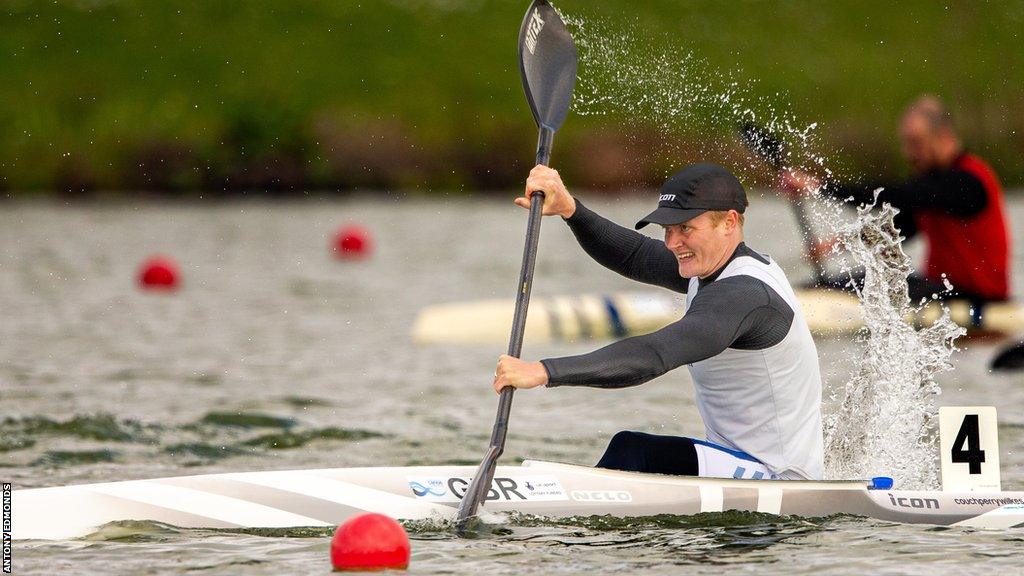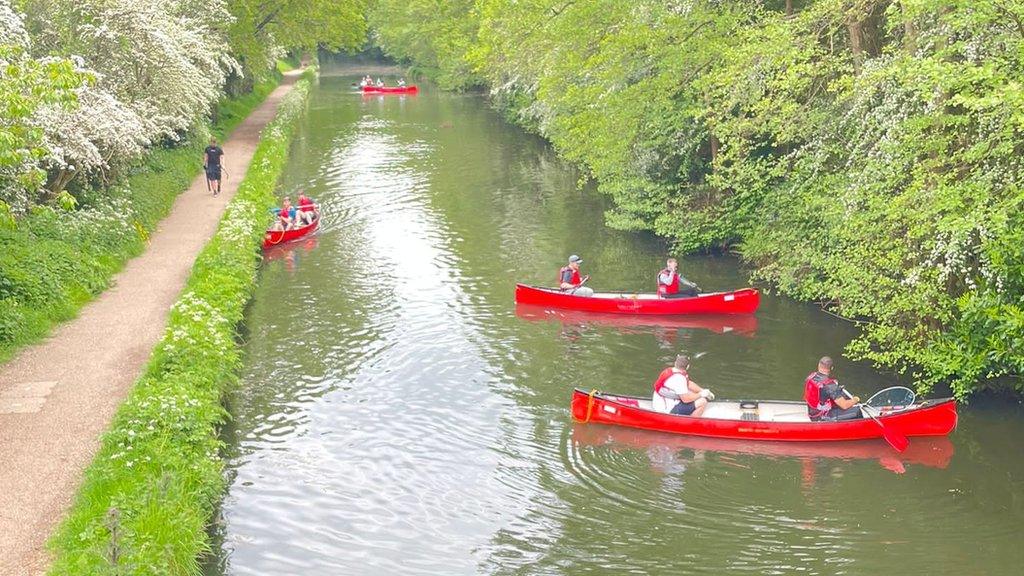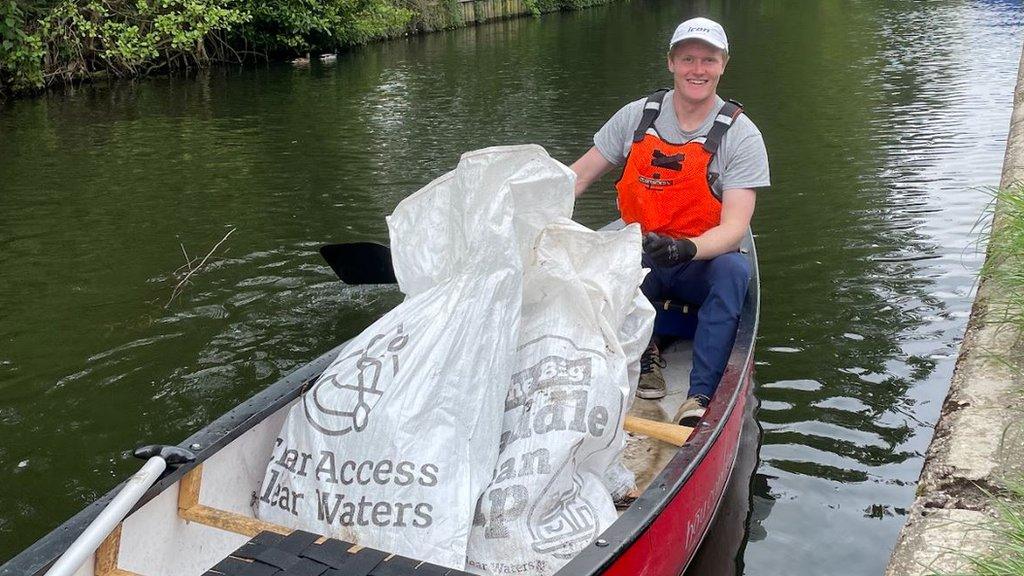Tom Lusty: Olympic canoe hopeful on rescuing a puppy and cleaning up canals
- Published

Tom Lusty competes in kayak sprint and aims to qualify for his first Olympic Games next year in Paris
As Tom Lusty paddles towards his Olympic dream, he finds himself fishing out discarded bikes, plastic bags and shoes of all sizes from the water he glides across.
He even saved a puppy once.
The 29-year-old kayaker was drawn to the sport because he immerses himself in the natural environment in which he competes.
So waste items in the water are not something he can ignore.
During one training session in 2018, an object kept catching his attention as he powered up and down a canal in Solihull.
"I was training for the World Championships in K2 1000m with Dan Johnson and we were going up and down this section of the canal and went past this thing in the water about six times," Lusty told BBC Sport.
"It wasn't until we were warming down that we realised it was a dog. This puppy was still alive and in the water. It appeared to have fallen in after escaping from a nearby garden.
"It was in shallow water and couldn't go anywhere, so we fished it out, got it to a local dog centre and they got it back to its owner.
"That was really random. It's not waste, but coming across a puppy is a real shock and I never knew how much a wet dog weighed."

Lusty and his work colleagues recently took part in a Big Paddle Cleanup
Litter picking on waterways across the UK has been a focus in recent weeks during the Big Paddle Cleanup, external - an initiative that saw British Canoeing shortlisted for a BBC Green Sport Award last year.
In excess of 900 large sacks of waste were collected by more than 1500 volunteers over a two-week period.
With junk still to be processed and tallies ongoing, the total rubbish haul included more than 1200 glass bottles, 2,100 cans, 3,400 pieces of food wrapping and other random items, including a roadworks barrier, a fridge door, footballs and golf balls.
On his return from a strong sixth-place finish in the K1 500m final at the season-opening Sprint World Cup event in Szeged, Hungary, last month, Lusty joined his workmates to clear almost 160kg of rubbish from the same stretch of canal where he pulled off his rover rescue, and that he regularly trains on.
As a building service engineer with CPW - a firm that focuses on delivering sustainable, low and zero carbon projects - Lusty says the time spent in a canoe collecting bags of trash is a way of "bringing all his interests together".
"I didn't start competing seriously until much later in life," he said. "I didn't compete abroad until I was 22 and a lot of people start when they are much younger.
"I've been paddling since I was 14. I'd go to the club on a Saturday and just enjoy being on the water and enjoying the landscapes.
"From there my love of the sport grew and I'm lucky to now compete internationally and to be growing some momentum on the world stage. And hopefully I'll manage to qualify for the Olympics in Paris, which is my focus for the next 18 months."

Lusty filled bags full of litter found in the water he usually trains on
Just days after Lusty helped with the clean up, he teamed up with Johnson to set a new K2 1000m record at The National Water Sports Centre, at Holme Pierrepont, the home of British Canoeing, close to the River Trent.
"People competing at the highest level can be conscious of their day-to-day environment," Lusty said.
"We are always plugging away a little bit at a time to try to make a big gain overall. The small percentages mean a lot at the top.
"Marginal gains really matter. I think something like that is definitely valid for a sustainable future.
"Little bits add up to a lot and that is also an analogy for our performance. For the Big Paddle Cleanup, it's a massive analogy for what we can do day-to-day as a country and globally as a community to minimise our impact on the world."